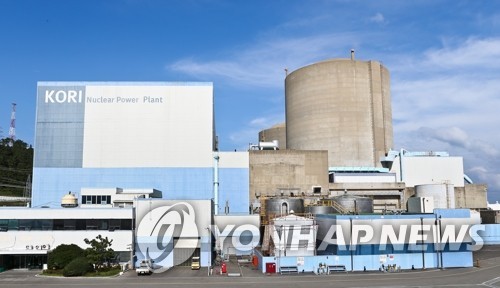News & Event
- Home
- News
- News & Event

According to Yonhap News,
(BUSAN=Yonhap News)
Busan and Ulsan jointly attracted Korea's first nuclear decommissioning research centers which will cost about KRW 240 billion.
On April 11, Busan city said that the nuclear decommissioning research centers are decided to be set up in the border area between Busan and Ulsan. The Ministry of Trade, Industry and Energy, Busan city, and Ulsan city are to sign an MOU within next week, if early.
This area is home to many nuclear power plants, and close the the Kori-1 which permanently shut down, and equipped with the industry-academia-and research infrastructure for decommissioning research.
Busan and Ulsan city expect that the establishment of nuclear decommissioning research center will generate maximum effects to related industries.
The construction for the research centers will commence in 2020, with the target of completion in 2022.
It is estimated to cost KRW 240 billion to build the research centers.
The central government, local governments, and public institutions will bear the cost jointly.
Currently, there are 24 nuclear reactor units in operation, and 12 of them will close in 2030.
The total cost of dismantling retired reactors is expected to be more than KRW 10 trillion.
It factors in the estimate of the Korea Hydro & Nuclear Power, which is to put KRW 751.5 billion in dismantling the Kori-1, retired in 2017.
Going beyond the domestic market, the worldwide decommissioning market is to grow rapidly.
According to the forecast of the Korea Atomic Energy Research Institute, as the expiration dates of nuclear reactors built during the 1960s-1980s approach fast, the number of nuclear reactors to be decommissioned will continuously grow from 183 in 2020 to 216 after the 2030s.
Even after considering variables such as extension of nuclear reactors operation, the decommissioning market is likely to expand to KRW 440 trillion (based on the cost of 2014) if decommissioning continues beyond the 2050s.
The government has been pushing for the establishment of nuclear decommissioning research centers in the southeastern part of the country where nuclear reactors are concentrated to accumulate relevant technologies and be a first mover in the growing nuclear decommissioning market.
pcs@yna.co.kr
Copyrights Yonhap News. All Rights Reserved.
Reprint or redistribution without permission is prohibited.
** This article was translated from Korean.
Source: Yonhap News (April 11, 2019)